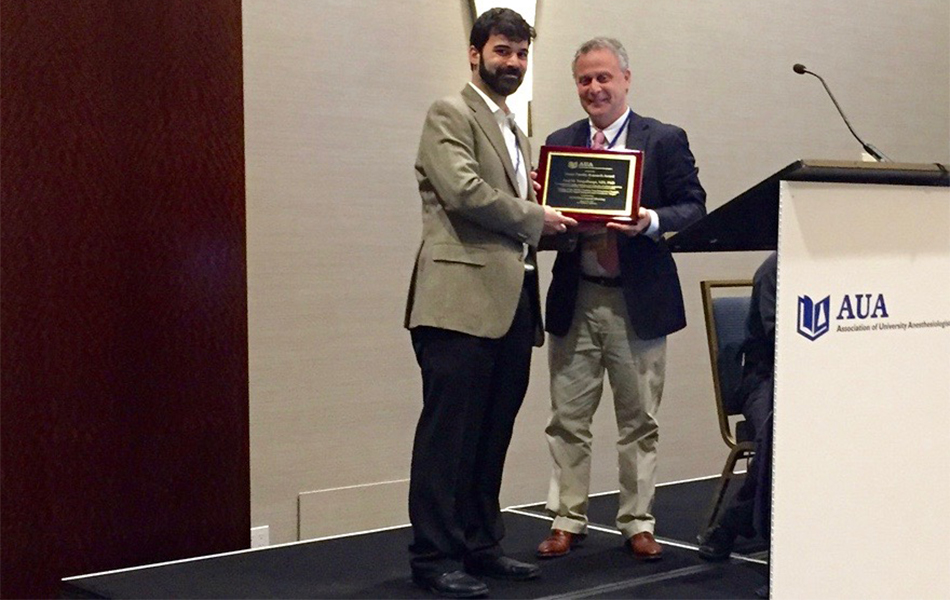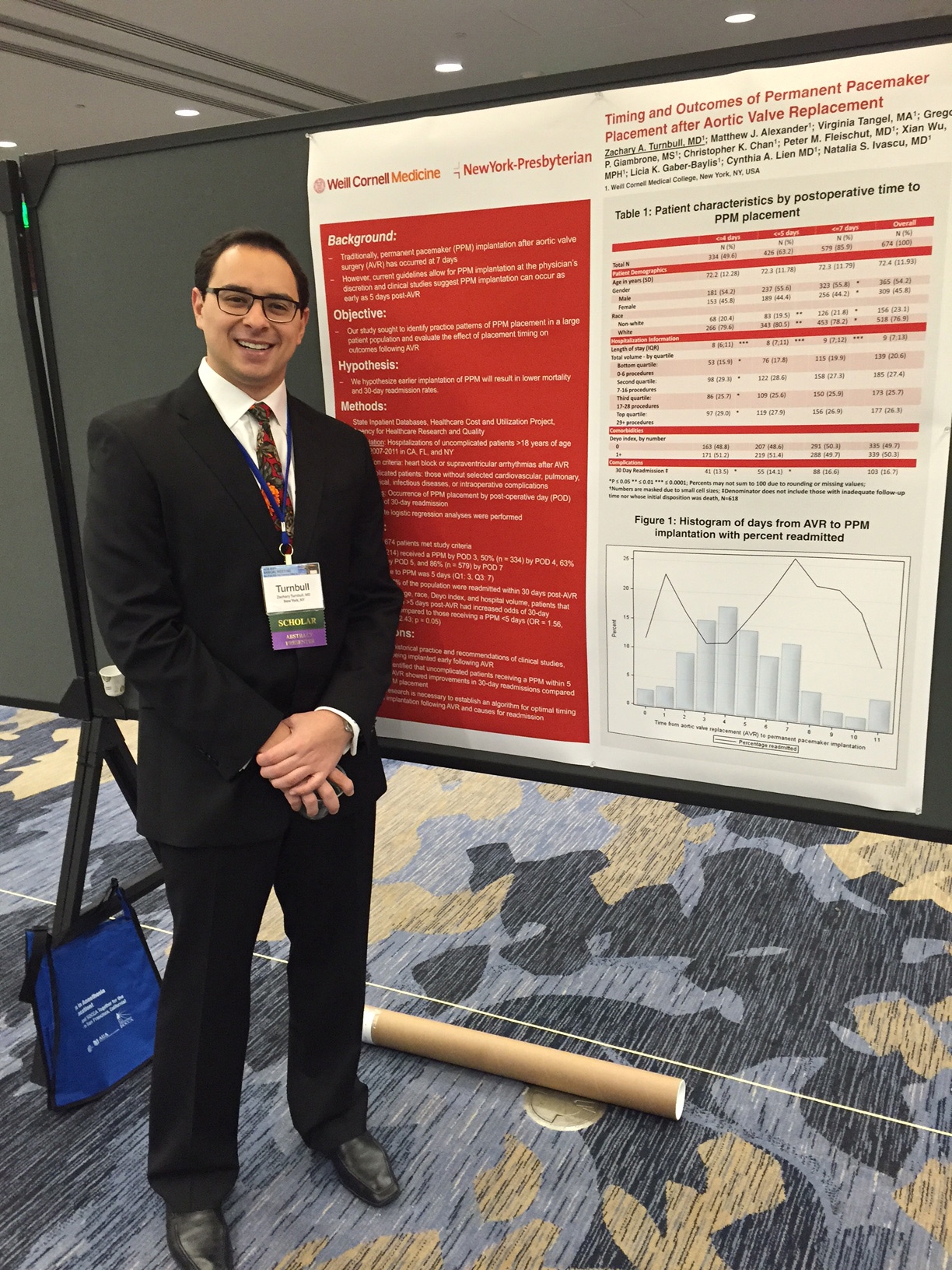
Weill Cornell anesthesiologists were active at the 63rd Annual Meeting of the Association of University Anesthesiologists (AUA). The meeting was held May 19-20 in San Francisco.
Dr. Peter Goldstein, professor of anesthesiology, co-moderated the two oral presentation sessions that opened the meeting. He also moderated two poster sessions in basic neurosciences: Neuronal Injury, and Anesthetic Action-Neural Networks.

Dr. Zachary Turnbull presenting a poster at the AUA
Department members participated in several well-attended poster presentations. The presentations included:
Zachary Turnbull, MD; Matthew Alexander, BS; Peter Fleishchut, MD; Amanda Carr, BS; Bohdan Hawyrluk, MS, & Hugh Hemmings, MD, PhD, “Real time compliance solutions in a disparate electronic medical record system."
Zachary Turnbull, MD; Virginia Tangel, MA; Christopher Chan; Cynthia Lien, MD; & Natalia Ivascu, MD, “Timing and outcomes of permanent pacemaker placement after aortic valve surgery.”
Paul Riegelhaupt, MD, PhD; Marco Lolicato, PhD; & Daniel Minor, PhD, “Gating of the TREK1 tandem pore potassium channel, a molecular signal integrator and anesthetic target.”
Honors went to Dr. Paul Riegelhaupt, instructor in anesthesiology, for his work. It was selected by the AUA’s Scientific Advisory Board (of which Dr. Goldstein is a member) for oral presentation during the meeting’s opening session. Dr. Riegelhaupt received further recognition for his research as the recipient of a Junior Faculty Research Award, one of two given to junior faculty for outstanding scientific inquiry.
Dr. Goldstein had the privilege of presenting the award.
Dr. Riegelhaupt’s research focuses on the structure:function relationship of tandem two pore potassium (K2P) channels, which are responsible for the background (or “leak”) current seen in neurons. Of the 13 members of this family, TREK1 (TWIK-related potassium channel) is the most widely studied. It is modulated by numerous factors, including volatile anesthetics. Using functional studies in conjunction with protein purification and crystallography of wild-type and mutant K2P channels, Dr. Riegelhaupt and colleagues identified the conformational moves that underlie gating transitions in K2P channels, thereby defining a mechanism by which structural movements lead to channel activation.

